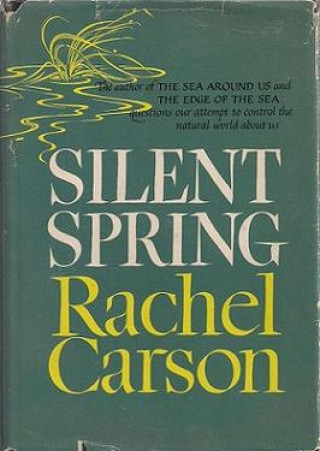Rachel Carson was a passionate and poetic writer, but she was not a particularly subtle one. When she set out to write a book, it did not end until the mountains had crumpled into the sea, all organisms dead or alive had vanished therein, and the form of life itself on Earth had been radically altered. Before Carson wrote her most influential book, Silent Spring, she wrote three thrilling books on the ocean’s creative power over all of life’s forms, each of them ending just this way.
Carson’s first book, Under the Sea-Wind (1941), about the migratory patterns of fish and birds along North America’s Atlantic coast, concludes: “For once more the mountains would be worn away by the endless erosion of water and carried in silt to the sea, and once more all the coast would be water again, and the places of its cities and towns would belong to the sea.” A decade later she published the National Book Award–winning The Sea Around Us (1951), whose final sentence is: “For all at last return to the sea—to Oceanus, the ocean river, like the ever-flowing stream of time, the beginning and the end.” And in 1955 her ode to shoreline ecologies, The Edge of the Sea, was yet another return to form: “As the years pass, and the centuries merge into the unbroken stream of time, these architects of coral reef and mangrove swamp build toward a shadowy future. But neither the corals nor the mangroves, but the sea itself will determine when that which they build will belong to the land, or when it will be reclaimed for the sea.”
Unlike 1962’s Silent Spring, her subversive argument against the overuse of insecticides, widely credited as a crucial step toward the founding of the Environmental Protection Agency, Carson’s first three books—recently collected by the Library of America under the moniker The Sea Trilogy—are neither calls to political action nor calls for social change. In her second and third books, there are references to the rising and warming seas, but a man-made explanation for this isn’t put forth. Nor is there a sense of nostalgia or fatalism in these lines, some desperate desire to reach for a pristine refuge or nihilistically hasten our demise.
